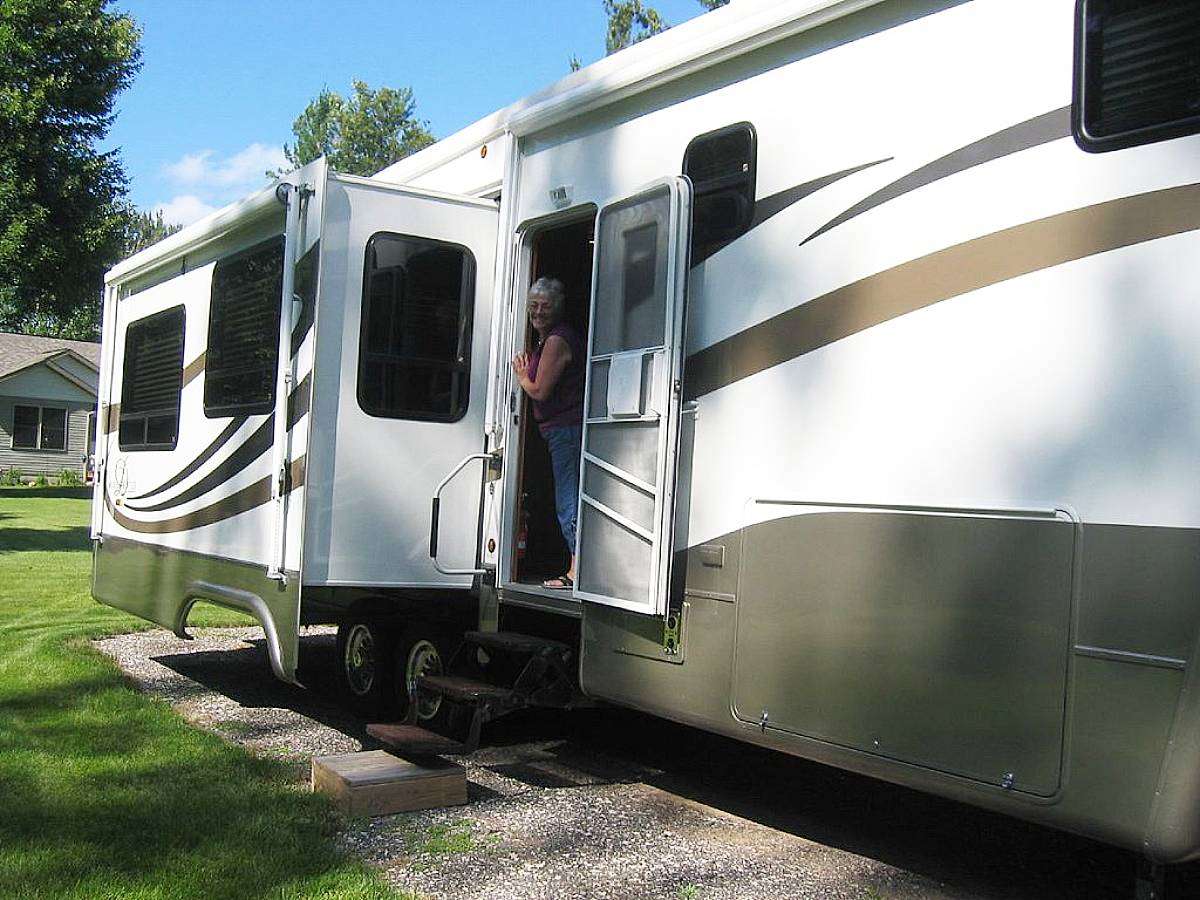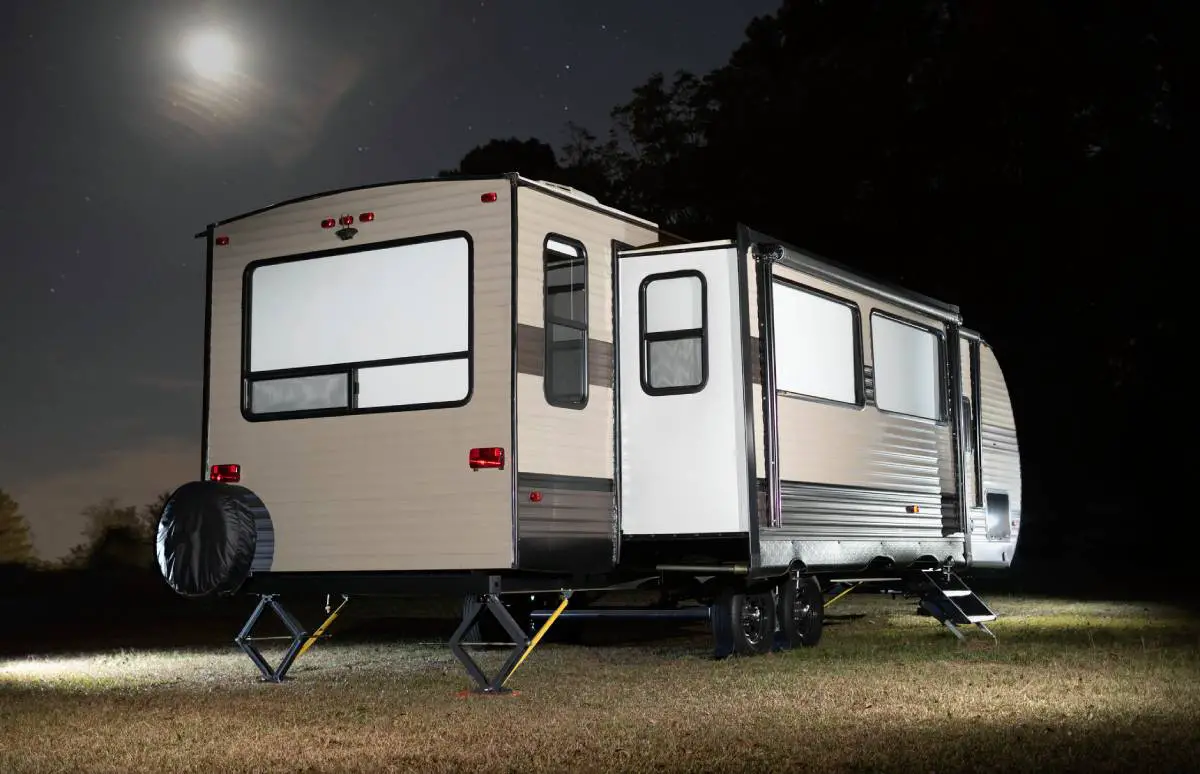 With RVs costing anywhere from a few thousand dollars to a few million dollars, it’s important to start with a budget in mind.
With RVs costing anywhere from a few thousand dollars to a few million dollars, it’s important to start with a budget in mind.
That’s true whether you’re shopping for a pricey Class A motorhome, or a standard Class C RV.
Following are some typical RV expenses that you need to budget for ahead of time… before you buy an RV.
You should probably consider these things before you sign on the dotted line.
Financing A New Or Used RV
The first issue is the purchase price of the RV you’re looking to buy.
Some questions you should ask yourself:
- How do you intend to pay for your purchase?
- Have you considered the size of your down payment?
- What about the finance interest?
- Have you thought about the length or term of the loan?
You may find that current RV financing options have tightened up a bit.
In the past, you could extend the term of a loan as long as 15 years. But that’s not always a good choice, because the additional interest that a longterm loan will accrue has the same affect as paying for your new RV… twice!
The low down payment and smaller monthly payments are appealing, but they can be a financial trap. When you don’t build equity in a vehicle fast enough, depreciation will out-pace your payments. In the event that you must sell your RV, you will find yourself owning much more than the residual value. If at all possible, financing beyond 5 years should be avoided if you ever expect to own your RV free and clear.
What About RV Insurance?
Before your RV even leaves the dealer’s lot, RV Insurance will become your first operational expense.
Choosing the correct insurance is vital, because not all RV insurance policies are created equal.
A couple of things to think about before insuring your RV:
- If your RV will be used only for weekend outings or vacations, then additional insurance coverage through your automotive insurance vendor may be quite satisfactory.
- On the other hand, if you’re going to be a full-time RVer, many name brand auto insurance companies will want nothing to do with you. And if you fail to make them aware that you’re a fulltime RVer, your policy may even be void!
Having the correct type of insurance that will protect your valuables and provide homeowner type liability coverage is more expensive, but if your RV is your home it should be considered mandatory.
Fuel Costs
The most expensive day-to-day expense when RVing is the cost of fuel. The size of your RV will be the determining factor in your MPG expense.
- Diesel RVs are usually heavier and, as a result, you can expect to get less than 10 MPG.
- Large gas RVs can approach the top limits of their chassis’s abilities and, likewise, will get less than 10 MPG.
- A moderate-sized Class C RV might bump it up to 12-14 MPG.
- A smaller Class B RV can get above 15 MPG.
Though gas prices tend to fluctuate, diesel prices tend to remain quite a bit higher because you’re competing against commercial trucks for the quantity of diesel fuel available. The whole fuel industry is a very unstable affair. That’s why you need to budget for dramatic changes in fuel prices.
RV Maintenance
Servicing and repairing your RV will be an ongoing expense that needs to be addressed.
Wear items have a specified service life that needs to be calculated and anticipated ahead of time. A small travel trailer may only require $100 worth of tires every 5 years, while a diesel pusher motorhome will require oil changes and numerous filters replaced — to the tune of $100 to $200 or more every 5,000 miles or so.
Don’t forget brakes and servicing the transmission when the manufacturer requires it. An extended warranty can help keep unexpected repair costs within an affordable range. Just be sure to read the fine print completely so you know exactly what coverage you’re buying.
Parking & Overnight Expenses
Your final expense for RV budget purposes depends on where you plan on spending the night.
If you’re staying at truck stops, the cost will be minimal. You might spend money going to the diner for supper occasionally, but there is no cost for parking at truck stops.
On the other hand, if you plan on spending time at upscale RV resorts, then your nightly expenses can become a definite budgetary concern.
By looking at all aspects of the RV lifestyle ahead of time, when it comes time to sign the contract on that new RV your decision will be based on a clear understanding of the types of expenses associated with RVing as a whole.
More RV Budgeting Tips:
- How To Budget For RV Costs
- What To Look For When Buying A Used RV Trailer Or 5th Wheel
- Tips For Downsizing Your RV Lifestyle
- 2005-2008 Fulltime RV Budget Expenses
- How To Choose The Right RV For Fulltime RVing
- Find What An RV Is Really Worth
- RV Budget Tips For Fulltimers
- Tax Deductions For RV Owners
- What To Look For When Buying A Used Motorhome
I’ve been involved in RVing for over 50 years — including camping, building, repairing, and even selling RVs and motorhomes. I’ve owned, used, and repaired almost every class and style of RV ever made. I do all of my own repair work. My other interests include cooking, living with an aging dog, and dealing with diabetic issues. If you can combine a grease monkey with a computer geek, throw in a touch of information nut and organization freak, combined with a little bit of storyteller… you’ve got a good idea of who I am. To date, I’ve shared my RV knowledge in over 300 articles here at The Fun Times Guide! Many of them have over 25K shares.




